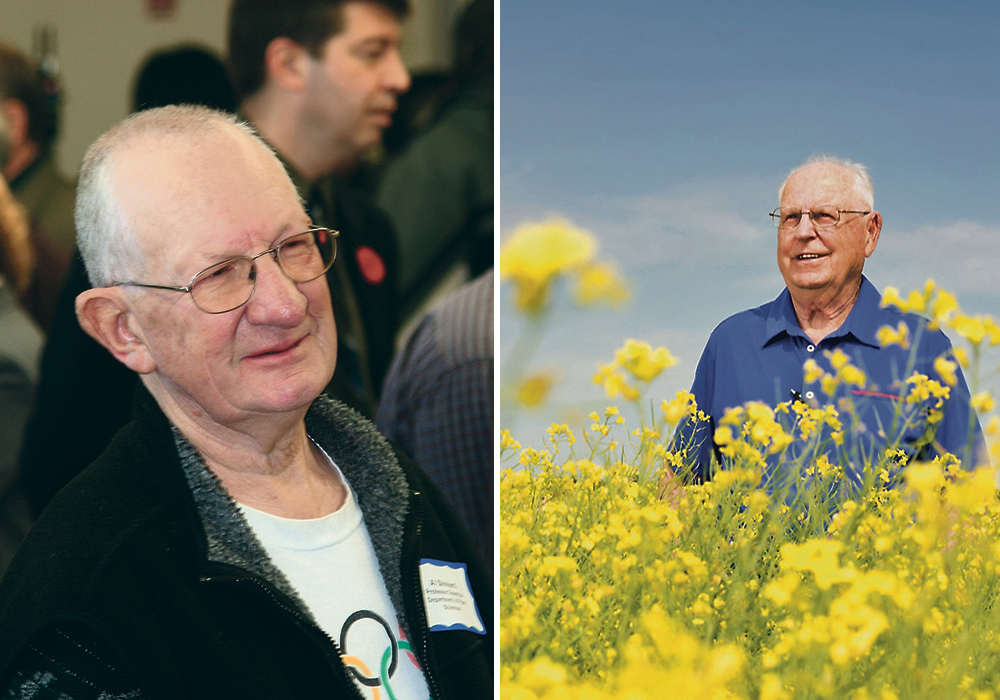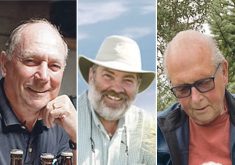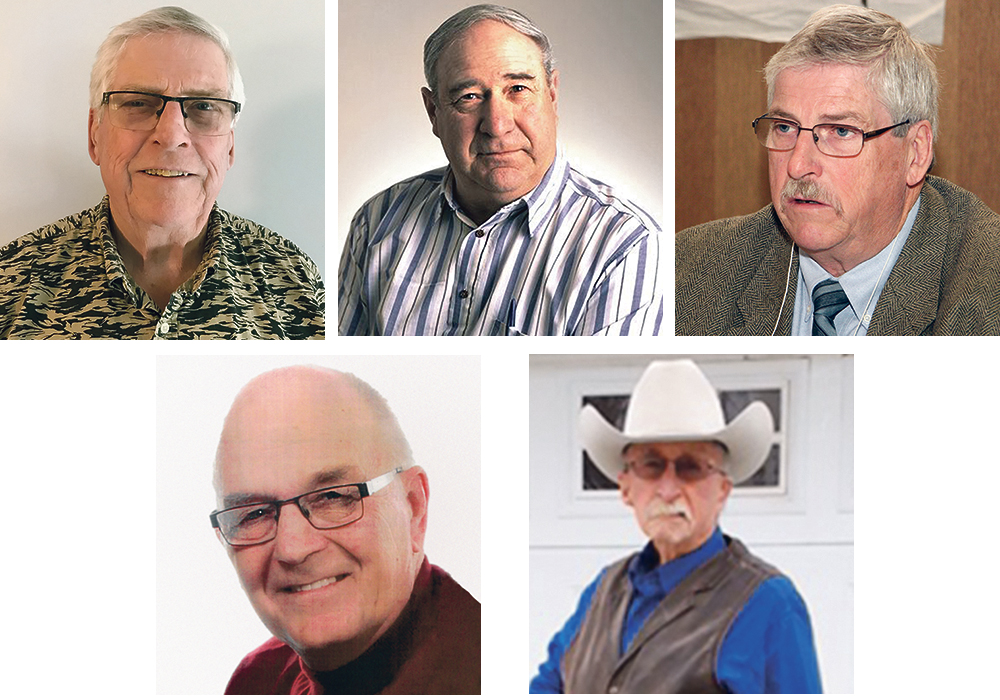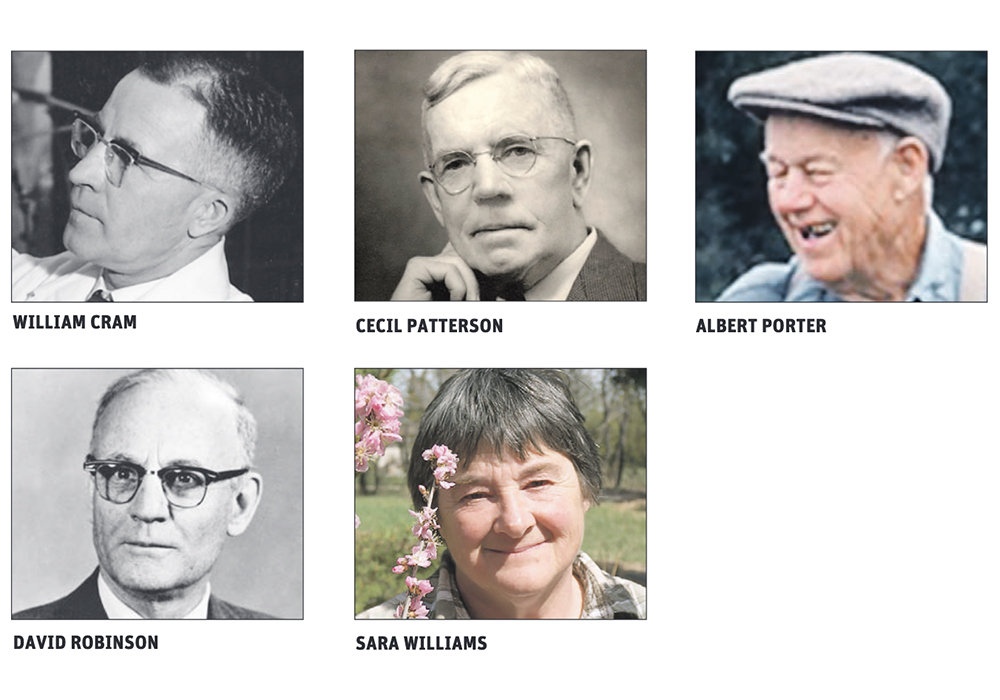“People are an organization’s most valuable asset and the key to its success” — Dave Bookbinder – business evaluation expert and author.
This is true within this province’s agriculture plant breeding programs. Alfred Slinkard (2000), Keith Downey (1996) and Brian Fowler (2018) were valuable assets to Saskatchewan agriculture, as plant breeders for pulses, canola and winter wheat. Their plant-breeding efforts involved the selection of high performing cultivars adapted to growers while meeting the needs of consumers around the world. All three are recognized in Saskatchewan’s Agricultural Hall of Fame.
Laird and Eston lentil, Oro, Span and Candle canola, CDC Kestrel and CDC Falcon winter wheat varieties had large positive impacts for western Canadian farmers.
Slinkard varieties are the strong foundation of lentil production here and are world class.
Downey is also proud of his Westar and Tobin varieties that dominated canola acreage for a better part of 10 years. Combined with a strong agronomic package Fowler bred varieties allowed farmers to increase yield targets by more than 50 percent and accounted for more than 90 percent of western Canadian winter wheat acreage outside southern Alberta by 1996.
While Fowler and Slinkard were from farms, Downey was a city boy whose interest in agriculture was sparked by a family friend, the dean of agriculture.
Slinkard retired in 1998 and suffered a stroke the year he was inducted. After his recovery he concentrated on spices developing several varieties of coriander, fenugreek and dill.
At the time of his induction, Downey was retired but continued research and writing as Sr. Research Scientist Emeritus at Agriculture and Agrifood Canada, Saskatoon and operated Canoglobe Consulting. Much of his efforts were and still are reaching acceptance of transgenic plants in the market and the science of gene flow in Brassica crops and weeds.
Fowler, retired in 2019, alternating from cleaning fifty years of files and travelling to places like the Antarctic.
When asked about the importance of mentors, Slinkard said if it wasn’t for his early mentors encouraging and helping him complete applications, he wouldn’t have had the career he enjoyed so much.
Downey said, “Having a good mentor is like learning to ride a bicycle. The mentor is the one who holds the bike upright, points you in the right direction, provides words of encouragement, gives you a gentle push and might even have greased the gears.”
Fowler added, “mentors can come in many forms, and is often a two-way street”. He described being part of a ‘perfect research storm’ in winter wheat production that brought together a number of associates and students who became the lifeblood of the program and later recognized as experts across western Canada. All agreed that farmers and extension personnel ranked high on their mentor lists.
All have a bit of advice for plant breeders in agriculture today.
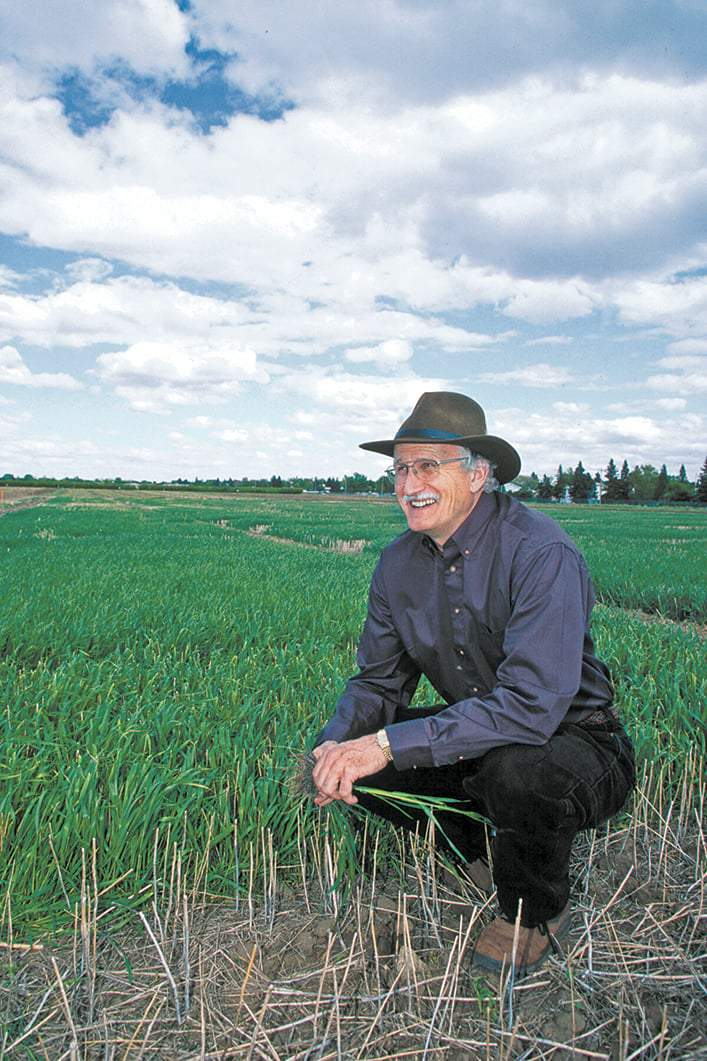
“Learn the latest genetic techniques, bring in expertise to gain understanding” and jokingly,” be in the right place at the right time” said Slinkard.
Downey said, “Innovations that will greatly benefit agriculture and the public are now possible but breeders and others will have to make their voices heard in support of science-based decisions and discredit those organizations who have spread misinformation and market fear.”
He added, “cooperation is essential, breeding is no longer a one- person endeavour, if it ever was.”
Fowler suggested, “Make the best of your opportunities. Know your customer and value chain. Remember, the farmer has been the traditional initial customer of your products and their success is dependent upon continued market acceptance”.
When it comes to the future of agriculture, all expressed their hopes that the potential of the next generation be fully realized as the current crop of this developing resource is impressive.
Downey said he hopes that in the next Canadian generation the pendulum will swing from a belief in social media to being science believers.
These plant breeders, although working in diverse crops, had similar values in that they respected and paid attention to Saskatchewan farmers. Without their efforts we would not be such a diverse crop industry contributing greatly to the province’s economy but also to the sustainability of agriculture. Thank you.
Linda Braun is a Saskatoon freelance writer with an extensive background in the region’s agriculture and food.

